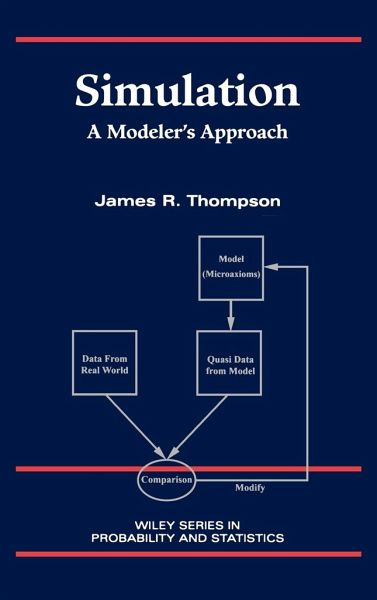With the advent of faster computers with comparatively large storage facilities, simulation-based modeling is rapidly being adopted as an alternative approach to conventional top-down, assumptions-based, continuous, stochastic and discrete differential equation modeling. Thompson offers an interesting exposition to the art of simulation, and views "simulation approach" to modeling as a paradigm for realistic evolutionary modeling. The book is written in a very casual style, and background knowledge in statistics is all that is required to grasp the material contained therein. Thompson begins with an exposition of the generation of randomnumbers and then delves into a variety of special topics, including models for stocks and derivatives,
optimization and estimation in a noisy world, Monte-Carlo solutions to differential equations, simulation assessment of multivariate and robust procedures in statistical process control, resampling-based tests, and some exposition to modeling the AIDS epidemic. Several useful algorithms, problem sets, and references to standard simulation packages are provided. Short chapter bibliographies; wide range of examples. The book could be used as a resource for beginning graduate students and professionals in applied statistics, computer science, economics and finance, engineering, and the natural sciences. Highly recommended. Graduate students; faculty; professionals. (CHOICE, April 2001, Vol. 38, No. 8)
"...an eclectic survey of computing methods...lively and interesting...the wide variety of example certainly helps bring the material to life." (Journal of the American Statistical Association, Vol. 97, No. 457, March 2002)
"...a very useful and entertaining book...a great reference book...contains some valuable material and philosophy that is unavailable anywhere else." (IIE Transactions)
"...often entertaining...the level of detain and relevance is appropriate...a worthwhile read for model builders comfortable with both mathematics and simulation." (Complexity, Vol. 7, No. 2, 2002)






